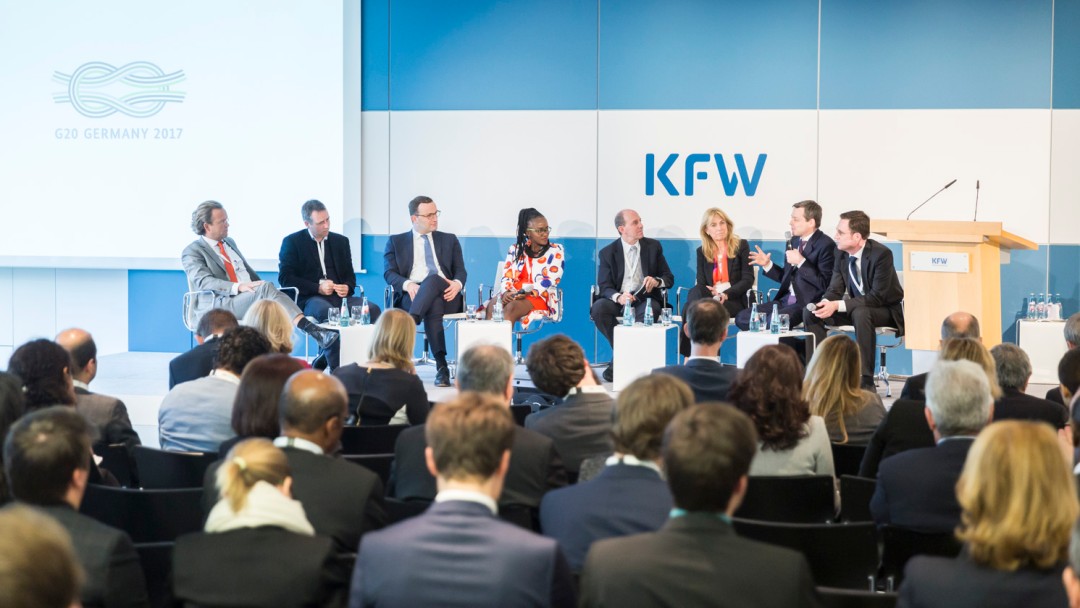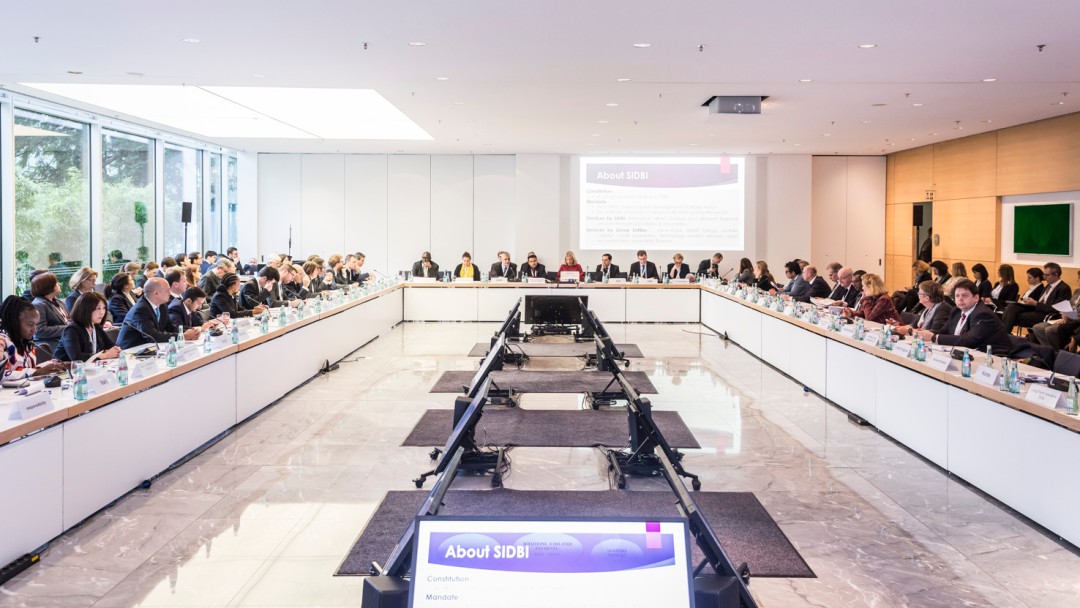News from 2017-03-01 / KfW Development Bank
Facilitating access to SME finance
G20 workshop "Helping SMEs go global – Moving forward in SME finance" in Frankfurt emphasised the importance of providing appropriate financing to medium-sized companies for increasing employment and stable growth.
At the end of February and within the context of the German G20 presidency, more than 160 representatives from central and development banks as well as political leaders from all G20 states met at the KfW headquarters in Frankfurt to discuss the financing of small and medium-sized enterprises (SMEs). The workshop was organised and hosted by the German promotional bank KfW in collaboration with the Federal Ministries for Finance (BMF) and for Economic Cooperation and Development (BMZ) as well as the SME Finance Forum.
Together with the International Development Finance Club (IDFC), KfW organised the panel of development banks.
Dr Ingrid Hengster, member of the Executive Board of KfW, opened the distinguished event, stating that "the resilience of a national economy depends on its companies." Commenting on the challenges of a financial environment that has to serve the needs of companies with great discrepancies in size she emphasised that "the long-standing experience KfW has in promoting small and medium-sized companies puts us in an outstanding position to support our international partners."
The promotion of private investment and employment, especially in Africa, is one of the objectives that the German G20 presidency has committed itself to in the current year. The G20 SME action plan concentrates on improving access to credit for SMEs in order to ease market entry and allow for corporate growth.
During four interactive discussion rounds, representatives from almost all G20 countries, regional and national development banks, international organisations and networks (Long-Term Investors Club LTIC and IDFC) as well as private sector delegates discussed how to improve the inclusion of SMEs in global value chains by means of an appropriate financing offer, as well as the contribution of innovative financial technology and the role development banks and politics play in this context.
A top-ranking panel that was also open to the press and which included Dr Hengster, the Parliamentary State Secretaries Jens Spahn (BMF) and Thomas Silberhorn (BMZ) as well as four FinTech companies from various countries, discussed the significance of innovative financing models for medium-sized companies. In particular, the advantages of a cooperation between FinTech companies and established banks were highlighted by the panellists. Dr Hengster pointed out the broad spectrum of KfW’s promotional activities in the field of SME finance that ranged from corporate finance to venture capital for technology-oriented start-ups.

In the panel "Fostering SME Finance in Sustainable Global Value Chains", representatives from IPC, Puma, SAP and the impact investor ResponsAbility discussed with Bruno Wenn, Chairman of the DEG Management Board, about the possibilities to provide SMEs with a direct access to internationally sustainable value chains. Mr Wenn brought in the example of DEG's clients BAC San José, Banco Promerica, Metier Capital Growth Fund as well as DEG's up-scaling client Meru Greens to emphasise the necessity of an individual financing and consultancy offer that is tailor-made to suit each company. According to him, this is the only way to achieve long-term success in growth and development.
In the IDFC development bank panel Dr Thomas Duve, KfW Director and Head of the Southern Africa and Regional Funds Department, underlined the experience of KfW Development Bank with regard to promoting and financing SMEs in Africa. "In a region where bank structures are still weak and little knowledge about SME financing exists, we need pioneers to demonstrate what is possible," said Thomas Duve. He presented successful approaches for specialised structured investment fund programmes that build up knowledge while encouraging private sector participation. Further examples of SME funding were provided in the discussion round "Best and avoidable practices of enabling SME access to finance: The role of Development Banks" by the representatives of the Indian commercial bank SIDBI, the Central American CABEI and the French development bank AFD.
The workshop participants agreed that market access for SMEs could be improved most effectively by fostering digitisation and innovative financial technology, strengthening regulatory framework conditions and mobilising private capital investments. In particular, they made suggestions about the role development banks can play in this process, for example assuming part of the risks involved, promoting a higher diversification of financial products and combining them with advisory services for local financial institutions.
The goal of facilitating access to SME finance is closely connected to the three priorities of the German G20 presidency: improve the stability of national economies, shape digitisation and support investments, especially in Africa.


Share page
To share the content of this page with your network, click on one of the icons below.
Note on data protection: When you share content, your personal data is transferred to the selected network.
Data protection
Alternatively, you can also copy the short link: https://www.kfw-entwicklungsbank.de/s/enzBWrMC.BiHA
Copy link Link copied